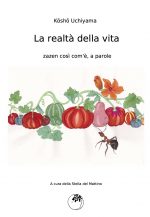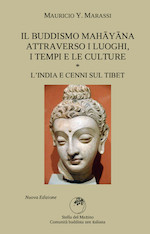The 16th century Italian poet Ludovico Ariosto, author of the very long poem “Orlando Furioso” (Furioso meaning both raging and raving, namely because of love), is usually considered to be a courtier who wrote funny verses in a time when wealthy, noble people liked to listen to poetry as a way to amuse themselves. So that the poet aimed at that by re-working a lot of old myths with great skill and no less humour.
Maybe Ariosto was more than that: subtler, deeper, even more “dangerous” than that. Maybe his natural sense of humour was a clever means to turn commonplace (so-called values included) upside down. A hidden revolution asking the reader to go beyond the shiny, often seemingly silly surface. By looking at it from this standpoint, his poem does become a destruction of any kind of idols: any conjecture made, any purpose, any certainty will be proved wrong by the following events, usually almost immediately, just few lines after they had been solemnly declared.
A pessimistic insight? Not at all. Ariosto can smile while describing our Samsara since he looks at it from his own Nirvana. And, he can feel to be in a Nirvana since he is absolutely sure to be completely involved in anybody’s Samsara.
Some scattered samples.
Orlando Furioso XXX: 4
“I myself am not less mad than Orlando was.”
XXXV: 26-27
“If you want truth not to be hidden from you, you must turn all history upside down” (27, 5-6). That means e.g. that the Roman Emperor Augustus is usually pictured as a great man only because the poet Virgil glorified him, and Virgil glorified him only because he needed the Emperor’s protection. Vice versa, we would have a kinder concept of Nero, have he had some better advertising. It’s hardly to be mentioned that to glorify Augustus and to damn Nero were – and are – standard western and christian standpoints. All the more interesting, as the one who teaches these things happens to be Saint John the apostle. Incidentally, moreover, this automatically deletes Ariosto’s praises of most members of the powerful family Este in Urbino, who were his Lords.
XLIII: 196
A holy monk, after expressing the usual stuff about life in this world being nothing more than mud etc. (XLIII: 195), enjoys such common pleasures as eating good food and drinking good wine together with a group of joyful knights. That’s in the line of the astonishing book of Qohelet in the Bible, or the philosophy of Baruch Spinoza, yet to come.
XLIV: 25
The most famous character in the poem is the Hyppogriffin, often taken as a typical example of Ariosto’s childish fantasy. Now, the English knight Astolfo sets the Hyppogriffin free. The eagle-horse flies away, we will never see it again.
XLIV: 50
The author gives his own definition of “volgo”, a word originally meaning “common people” but almost always referring to “vulgar (in fact) herd, plebs”, especially in the courtly environment. Ariosto’s definition includes not only the unworthy nobles, like in so much traditional poetry, but even “Popes, Kings, Emperors”.
XLV: 4
“Good follows evil, evil follows good. Do man not rely on his treasures, kingdom and victories, nor despair over an adverse fate…”
Se volete, lasciate un commento.
You must be logged in to post a comment.







